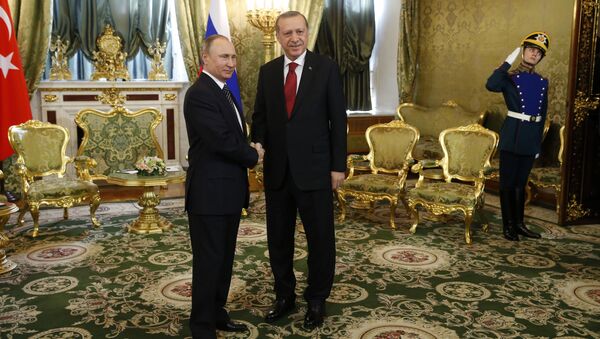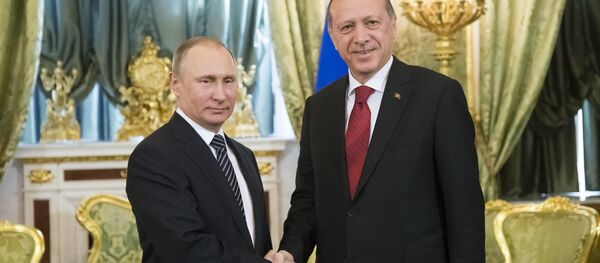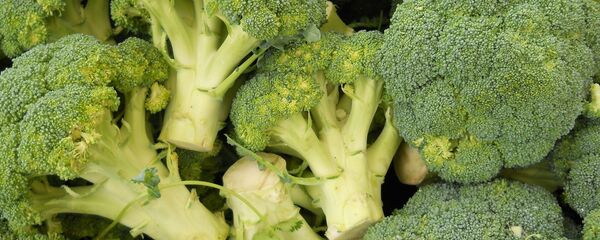MOSCOW (Sputnik) — Russian President Vladimir Putin said Friday he was certain that Russia and Turkey would not only be able to restore bilateral ties, but would also reach a new level of relations.
"Russia and Turkey have substantial potential for a steady development of neighborly ties. We will not only be able to make up for the missed opportunities, but will also reach a new level of relations, at least that's what the Russian side is ready to do," Putin said opening expanded talks with Turkish President Recep Tayyip Erdogan in Moscow.
He added that "Russian security agencies are interested in establishing an exchange of information on the movement of persons involved in terror along the territory of our countries".
The Russian leader expressed hope on Friday that Moscow and Ankara would be able to reverse negative trends in bilateral trade as early as in 2017.
"I have to admit that bilateral trade in recent years has been decreasing. In 2016, it dropped almost by one-third, reaching levels of decades ago. We are hoping that we will be able to reverse this negative trend in our bilateral trade as early as this year," Putin said. "We have good prospects for cooperation in metallurgy, car-making, agriculture and production of farming equipment," Putin added.
Stage-by-stage restoration of bilateral relations was launched on June 28, 2016 after a telephone conversation of the two presidents.
As a follow-up to the agreements reached by the presidents the foreign ministers of Russia and Turkey held a working meeting in Sochi on July 1, 2016.
On August 9, 2016, Putin and Erdogan met in St. Petersburg for the first time since the crisis in bilateral relations. At the meeting they agreed to restore cooperation in all areas.
In 2016, bilateral trade went down compared to 2015. Reduction in imports from Turkey was caused by the restrictions introduced by Russia on trade with Turkey in the end of 2015.
Russia primarily exports to Turkey mineral products (65.1 percent), metals and metal goods (19 percent). Imports are as follows: machines, equipment and transport vehicles – 33 percent; food products and agricultural raw materials – 27 percent; textiles and textile goods and footwear 16.3 percent and chemical products – 10.6 percent.



